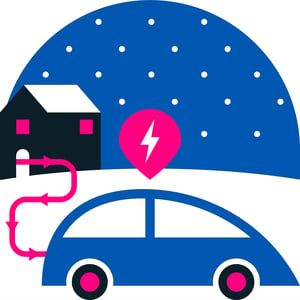Is your energy bill higher than expected?
It can be a nasty shock to receive a gas or electricity bill that’s higher than you had expected or budgeted for.
At a time when many are experiencing financial difficulty, this can be an especially hard blow. Amid the restrictions, job losses and economic hardship caused by the coronavirus pandemic, 9.6 million households are worried about how they are going to pay their bills this winter, according to research from Uswitch.
If your bill seems particularly high, it may simply be that your energy company has got the amount you owe wrong. If your bill is based on estimated readings, compare these figures against your actual meter. If the estimate is much higher than what you’ve used, then contact your energy company with your meter readings and have a more accurate bill reissued.
But there are several other reasons why your bill may be surprisingly high.
Pricey tariffs and inefficient homes
Some of the main reasons for higher-than-expected bills include:
- Expensive tariffs: it’s easy to get lulled into staying on the same, expensive energy tariffs. But if you don’t review your tariff at the end of the fixed term, you could pay over £200 more for your bill than if you were on the cheapest available deal with the same company. Switching your tariff takes 10 minutes and can save you around £300 on your annual energy bill.
.png?width=300&name=Is%20your%20energy%20bill%20higher%20than%20expected%201%20(1).png)
- You've just moved from estimated to accurate billing: if you were paying less than you should while you were on estimated billing, then your new accurate bill may seem expensive. In this instance, it’s still worth seeing if you could find a cheaper deal elsewhere.
- You have old, inefficient appliances: if your home is full of old, inefficient appliances then you’ll be paying a price for it. Maybe it’s time to switch to new, more efficient models? While you’ll usually have to pay more for a top-rated A+++ tumble dryer, for example, it could save around £46 each year compared with a C-rated one. Similarly, an A+++ rated electric oven uses 60% less energy than a B rated one.
- You never turn anything off: some appliances, like a fridge or freezer, need to be left on all the time, while others are usually kept on standby, like a smart speaker. But many appliances are left on that don’t need to be. This background electricity use is known as ‘Phantom Load’, because of the way in which energy is invisibly drained without users necessarily knowing about it. Analysis of Loop data found the average UK household wastes an average of £140 unnecessarily through their Phantom Load, while in some homes this could be as much as £450.

- Your home isn’t very energy efficient: If your home isn’t particularly energy efficient - perhaps because it’s old and poorly insulated - then it can be hard to keep your energy bills down. Thankfully, there are plenty of changes you can make, often at relatively low cost. These include things like replacing your inefficient lighting with super-efficient LEDs. There is even government help available to make your home more energy efficient, in the form of the Green Homes Grant. But this won’t be available for long, so make sure you do your research now if you think you could benefit.
You may also find you are suddenly landed with a much higher electricity bill if you have just bought your first electric car and are charging it at home. A 2018 study by Vivid Economics on behalf of WWF found that running an electric vehicle could add around £175 per year to the vehicle owner’s electricity bill. While that’s a big increase, you can console yourself with the £800 plus that you’d have otherwise spent on petrol or diesel. You could also switch to a tariff tailored to electric car owners.
Dealing with higher-than-expected bills
Once you understand the reasons for your unexpectedly high bills, you should hopefully be able to do something about it, whether that’s switching suppliers, slaying those energy phantoms or taking the time to make your home more efficient. And if your bills are higher because you have an electric car, you’ll know you can rationalise this ‘bill shock’ by considering the savings you’ll make at the forecourt.

If, like many people, you are still struggling with your energy bills despite doing all you can, then find out about some of the ways you can get help.
• • •
With Loop, you can find out how you use electricity, then make smart decisions about using less - click here to find out more. We have a risk-free, no-quibble, money-back guarantee as standard, so what's to lose...apart from some £££ from your bills and some weight from your carbon footprint?







